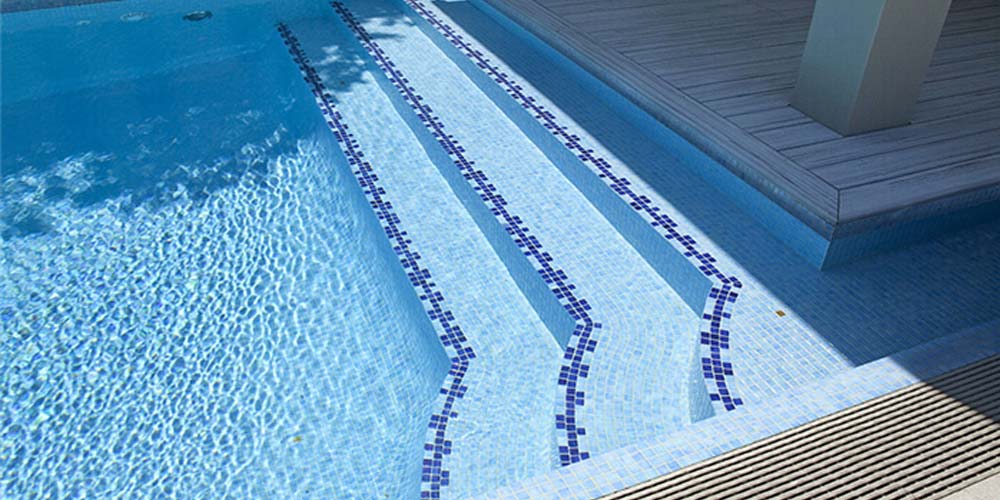Disinfection is an important step in pool maintenance to keep your pool water healthy. Saltwater pools and chlorinated pools are two types of disinfected pools. Let’s take a look at the pros and cons.
Chlorinated Pools
Traditionally, chlorinated pools have long been the standard, so people are generally familiar with how they work. Chlorine pools require the addition of chlorine in granule, tablet form along with other chemicals to help fight bacteria, cloudy water, and algae.
Regularly maintaining and cleaning your pool will help prevent bacterial and algae growth. You’ll need to skim off debris from a chlorine pool as needed, shock your pool (the process of adding chlorine to a pool to raise the chlorine level), and test pH (Every 2-3 days) and free chlorine (Every 1-2 days). You should also add algaecides weekly to slow the growth of algae.
Advantages of Chlorinated Pools
Lower initial investment.
Easy to maintain, become an expert yourself.
Chlorine disinfectants provide longer-lasting disinfection
Uses less energy than saltwater pools.
Less corrosive to metal equipment than saltwater pools.
Disadvantages of chlorinated pools
If not properly maintained, excess chlorine can irritate the eyes, throat, nose, and skin, and improper chlorine concentrations can also discolor swimsuits and hair.
Salt water pools
Like chlorinated pools, salt water pools require a filtration system, although it is different from traditional chlorinated pool systems. When shopping for a pool filter, be sure to look for one that is compatible with salt water systems.
Note: The “salt” in salt water pools is special swimming pool salt, not edible salt or industrial salt.
How Salt Water Pools Work
Contrary to what some people think, salt water systems are not chlorine-free. When you choose a salt water pool, . You add pool-grade salt to the water, and the salt chlorine generator the salt into chlorine, which is then sent back to the pool to purify the water.
Pros of Salt Water Pools
Chlorine is slowly generated and evenly dispersed in the pool water,the chlorine odor is slightly less than that of a chlorinated pool.
Automatically controlled by a salt chlorine generator, so the effective chlorine level will not fluctuate due to untimely maintenance
Lower maintenance workload than a chlorine pool.
No need to store hazardous chemicals.
Disadvantages of Saltwater Pools
The initial investment is higher.
Compatible, corrosion-resistant pool equipment is required
Salty taste
pH value usually tends to increase, so pay attention to adjustment
Algaecide needs to be added
Chlorine generator repairs are best left to professionals.
Salt chlorine generators run on electricity, which can increase your energy bills during the peak season.
The above are the pros and cons of salt water pools and chlorinated pools that I have compiled. When choosing a pool type, the pool owner should consider which type of pool is the best choice based on the local people’s usage habits and maintenance expertise. When owning a pool, it is good to follow the instructions of the pool builder to actively maintain the pool to avoid other unnecessary troubles.
Post time: Jul-04-2024

